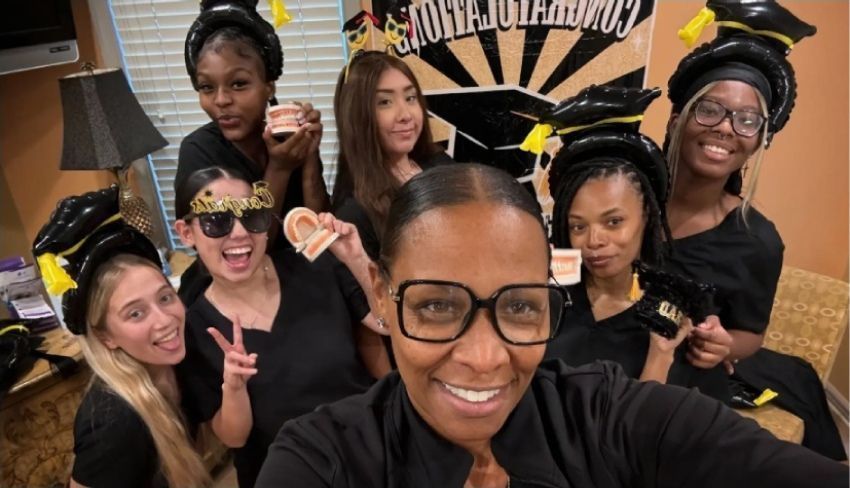Augusta Dental Assistant School — What Is Dental Assistant School Like?
When someone says “dental assistant school,” it can evoke images of lectures, labs, textbooks, and drills. But what is it actually like to attend? In Augusta, Georgia, the Augusta Dental Assistant School (via Zollege) offers a 12-week immersive experience that blends classroom learning, skills labs, and realistic clinical practice.
This article offers a window into the day-to-day life of a student, exploring the structure, challenges, expectations, and rewards of the program. You’ll also find FAQs and internal link suggestions.
Why Knowing the Experience Matters
Understanding what the school experience entails helps prospective students:
-
Gauge whether they’re prepared for the pace
-
Match expectations to reality
-
Decide if the learning style (hands-on, in-office) suits them
-
Plan personal and work schedules around training
As Chris Lofton, CEO of Zollege, often notes, it’s not enough to know what you’ll learn—you need to know how you’ll learn it, so students don’t struggle with surprises.
Overview: Augusta Dental Assistant Program Structure
The Augusta campus of Zollege delivers a 12-week program combining theory, hands-on training, and externship. Zollege.com
-
Tuition: $3,890 for a one-time payment (with savings on plan fees) Zollege.com
-
Payment plans: weekly installment options with deposit and payment plan fees (e.g. $183.33 weekly after $1,990 deposit) Zollege.com
-
Classes: a blend of guided instruction and skills labs in real dental offices or simulated settings
-
Externship: included as part of the program to provide real clinical exposure
Though the detailed curriculum on the Augusta page is less explicit, Zollege’s national model ensures standard coverage: infection control, radiography, chairside assisting, digital charting, impressions, restorations, and patient care. Zollege.com+2Zollege.com+2
Thus, the Augusta student experience mirrors that of other Zollege sites—fast, focused, and hands-on.
A Day in the Life: What to Expect
Morning / Lecture & Theory Blocks
Students typically begin with online lectures or classroom hybrid instruction—covering dental anatomy, terminology, ethics, infection control, and the fundamental principles behind clinical procedures.
Midday Skills Labs
After theory, students break into lab sessions in a clinical or simulated environment. Here’s where they practice:
-
Sterilization workflows
-
Instrument handling
-
Charting and record-keeping
-
Taking impressions
-
Core techniques like moisture control, suction, instrument transfer
Afternoon / Clinic Simulation or Practice
In some cases, students may work in partner dental offices or simulation labs to apply skills with supervision, bridging the gap between theory and real patient interaction.
External Assignments & Homework
To support classroom work, students complete assignments—readings, quizzes, digital modules—outside lab hours. Consistency is key because the program moves quickly.
Externship (Later Weeks)
Once foundational skills are established, students move into externships in live dental offices, where they assist with actual patient procedures under supervision. This is where the abstract becomes real.
Reflection & Feedback
At the end of each day or week, students review performance, get feedback from instructors, and identify areas for improvement.
The Challenges (and How to Overcome Them)
Fast Pace
With only 12 weeks, there’s little downtime. Students must stay disciplined, manage time well, and not fall behind.
Skill Mastery Under Pressure
Learning clinical techniques (e.g. instrument transfer, radiography) under time constraints can feel demanding. Repetition and review are critical.
Transferring from Simulation to Real Patient Work
The jump from lab to live patient can feel intimidating. But structured externships with oversight help ease that transition.
Balancing Outside Commitments
Many students juggle personal jobs or family obligations. The school offers flexible schedules to help, but staying ahead of coursework is key.
As the program manager at Augusta explains:
“We design daily labs and simulations so students build confidence before entering the clinic—and we support them every step of the way.”
Highlights of the Augusta Experience
-
Hands-on from early days: Unlike programs that delay clinical work, Augusta’s model integrates labs early.
-
Supportive environment: Instructors and advisors guide students through challenges.
-
Externship immersion: Real-world exposure ensures graduates aren’t walking in blind.
-
Practical assessments & feedback: Skill checks and reviews help identify weak spots early.
-
Peer collaboration: Students often learn best by working together on simulations and drills.
Outcomes & What Graduation Feels Like
By the end of 12 weeks:
-
You’ve worked in a real dental office environment
-
You’ve built a portfolio of skills (impressions, instrument handling, charting, radiography)
-
You feel comfortable walking into a dental practice ready to assist
-
Career preparation support helps you enter job interviews with confidence
It’s not just about knowing the tasks—it’s about doing them under real pressure.
FAQs — What Is Dental Assistant School Like?
Q: Are classes in-person or online?
A: The Augusta program uses a blended model—some lectures or modules online, but significant in-person lab and office-based training.
Q: When do I start externship?
A: After students master foundational skills, they transition into externship placements as part of the curriculum.
Q: How many hours per week will class run?
A: While exact hours vary, expect a full-time schedule covering lectures, lab, and clinical practice—often 30–40 hours weekly.
Q: Is there support if I’m struggling with a technique?
A: Yes. Instructors provide extra lab time, guided reviews, and mentoring to help reinforce confidence.
Q: Will I know how to assist in real procedures by graduation?
A: Absolutely. The structured training ensures exposure to real dental procedures, not just simulations.
Conclusion
If you’ve wondered “What is dental assistant school like?”, the Augusta program offers a fast-paced, immersive journey from book learning to real clinical support. With daily labs, early simulational practice, and culminating externship experience, you’ll graduate confident and competent.
You're 12 weeks from the dental assistant career you deserve.
